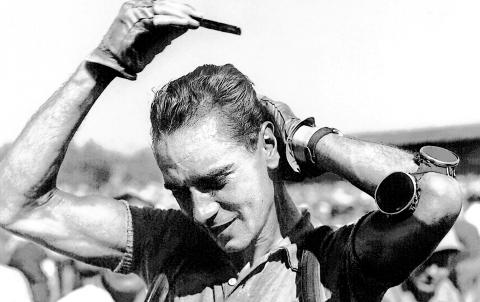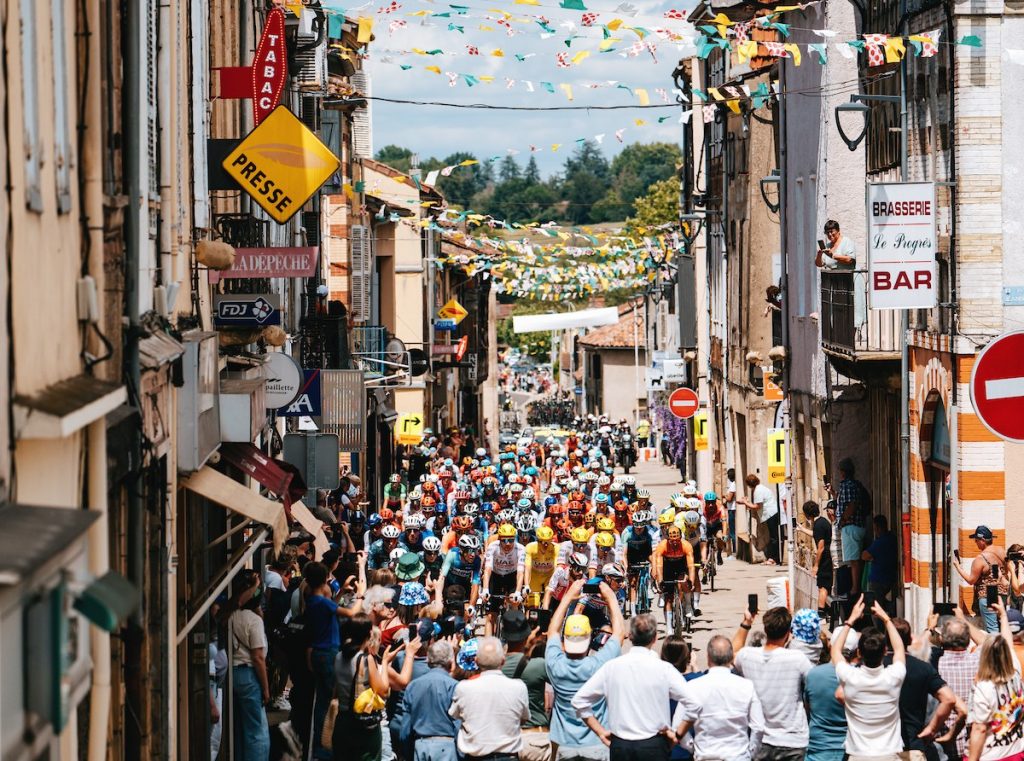It's the good old story. Someone launches an attack that seems rather a suicide mission. The peloton miscalculates, does not really care about the move. When they realise their mistake, it's usually too late. Hugo Koblet's epic solo victory in the 11th stage of Tour de France 1951 is a great exemplare how this can unfold into an amazing story.
The most astonishing part of the story is that Hugo Koblet wasn't a no-name rider in the peloton, whom this kind of stories rather used to happened to. Koblet has already won a grand tour, the Giro d'Italia in the previous season as the first non-Italian cyclist to achieve this triumph. Also, Fausto Coppi was in the peloton too (although his performance in 1951 was worse than at the other two occasions), who had several memorable epic solo breakaway rides during his career too, like the one at Milano-Sanremo in 1946, when nobody took him seriously as he rode away right after Turchino Pass.
The 11 stage of Tour de France was a 177 km long transitional stage. Thus generally it was a day for long breakaway attempts by lesser know riders from smaller teams, because the favourites and their teams usually gave less effort to catch them. But an attack by a former grand tour einnery currently 6th in the general classicication seemed rather like a stupid joke.
Anyway, Koblet, together with French cyclist Louis Deprez,
rode away from the peloton with 135 km to go.
Soon Deprez dropped, but Koblet had already 4 minutes. Now the peloton definitely had to take him seriously and work together to catch him. Koblet performance was anything but a joke.
The peloton, full with big names like Gino Bartali, Fausto Coppi, Louison Bobet or Raphael Geminiani started working together with 70 km to go, when Koblet still had 3 minutes. In 1951 Tour de France was sill competed by national teams, a system created by Henri Desgrange in 1930. The Italians seemed to be more willing to catch the daredevil Swiss rider, but the French helped them too
WOULD YOU LIKE TO READ MORE ABOUR ROAD CYCLING HISTORY?
A bit something different? Something deeper? In a broader cultural-historical context?
Then pelase, visit my Patreon!
Most recent articles:
The odd friction between practicality and heroism in early road cycling
But any of their attempts proved to be too late that day. Dont forget, Koblet was an excellent time trialist that also helped him to keep the pace between himself and the peloton.

As the finish line approached and it became clear that Koblet would win on this very day, in a move that would become iconic, Koblet, with a nonchalant air, pulled out a comb. As he crossed the line,
he combed his hair back,
a gesture that would be remembered as one of the most flamboyant in the history of road cycling races. It was as if he was telling the world, that his performance of riding alone most than 100 km was an effortless act, and he had conquered the stage and the peloton with ease.
Despite his stage victory, Koblet did not take over the overall lead yet. That happened only a few turbulent days later. In the 12th stage the Dutch Wim vam Est managed to claim the yellow jersey, only to loose it on the next day, when he fell in a 70 m deep ravine. Van Est luckily survived the crash, but his Tour was over.
Koblet's big chance to take over the lead came in the 14th stage, still in the Pyrenees. Koblet succesfully attacked again, won the stage and took the yellow jersey.
From that point on, Koblet was the man to beat, but no one could match his form, and won the Tour.
CAN'T WAIT FOR TOUR DE FRANCE 2025?
Visit the other member of PelotomTales blogfamily about the next French grand tour.
As we are waiting for the official route presentation (29 October 2024), take a look at the articles like
Latest Tour de France 2025 rumours
Caen will be celbrated very well
Plenty of time to loose in Toulouse

